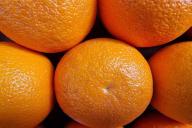Proper nutrition of a dog is an important aspect of caring for your four-legged friend.
Many owners wonder about the benefits of natural products in their pets' diets.
Fruits and vegetables can be a great addition to your dog's main diet, adding vitamins and minerals to his diet.
Healthy Fruits in Dogs' Diets
Apples are considered one of the healthiest fruits for dogs.
The fruits contain fiber, vitamins A and C, which help strengthen the pet’s immune system.

Before serving, remove the core and seeds.
Pears are a source of copper and vitamin K. Dogs enjoy the sweet flesh of pears, while also receiving nutrients to maintain health.
Watermelon is a great source of moisture on hot days. Watermelon pulp is rich in lycopene and helps maintain the health of the pet's cardiovascular system.
Safe Vegetables for Four-Legged Friends
Carrots are the number one vegetable recommended for dogs.
Rich in beta-carotene and fiber, carrots help maintain healthy eyes and digestive system in your pet.
Pumpkin is considered a real storehouse of useful substances. The vitamins B, A and C contained in it, as well as minerals, help strengthen the dog's immunity.
Zucchini delights pets with its delicate taste and low calorie content. The vegetable is rich in potassium and magnesium, which makes it an ideal choice for dogs watching their weight.
Rules for serving fruits and vegetables
The portion size should correspond to the dog's weight.
For small breeds, a few pieces are enough, for large breeds you can give more, but not exceeding 10% of the total diet.
Freshness of food is key. Overripe or spoiled fruits and vegetables can cause digestive upset in your pet.
Prohibited fruits and vegetables
Grapes and raisins pose a serious risk to dogs, causing kidney failure even in small amounts.
Onions and garlic can cause anemia in dogs by destroying red blood cells.
Avocados contain persin, a compound that is toxic to animals and can cause serious health problems.
Recommendations for the introduction of new products
Gradualism is considered the main principle when introducing a dog to new fruits and vegetables.
A small portion will help determine your pet's reaction to the product.
Monitoring the animal's condition after consuming a new product will allow you to notice possible allergic reactions or digestive disorders in time.








